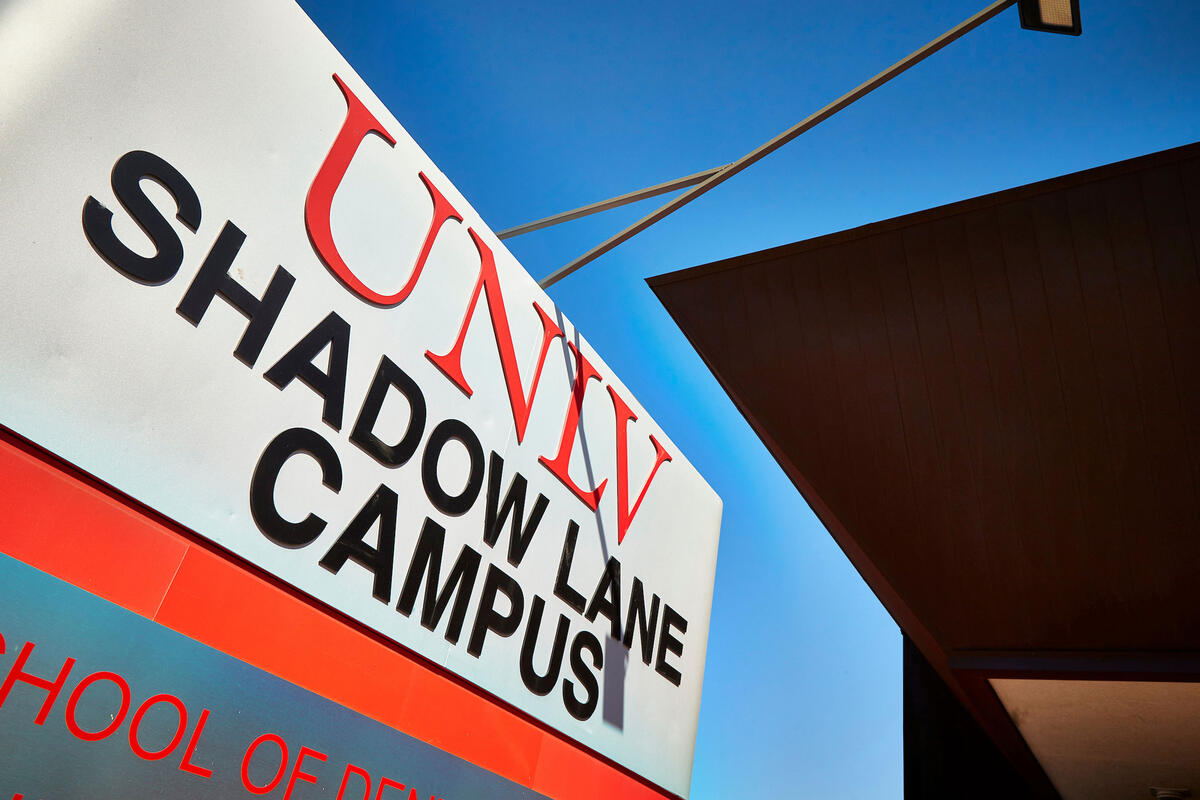More than 200 UNLV faculty and staff, elected officials, and community leaders gathered in the Strip View Pavilion at the Thomas & Mack Center on Monday for a launch celebration of Nevada academic health at UNLV.
The university’s academic health center, a model for sophisticated medical care and interdisciplinary research, has been a priority for nearly a decade. With key milestones accomplished, the AHC’s leadership team and campus officials gathered stakeholders to share their progress and, more importantly, to invite participation in the next phase of realizing the center’s full potential.
“My goal, my vision, my hope, is that academic health becomes part of our DNA,” said UNLV President Keith E. Whitfield.
“We’re better together,” said UNLV School of Public Health Dean Shawn Gerstenberger.
“This is not just our academic health center, it’s your academic health center,” said Michelle Paul, Workday endowed executive director of the interdisciplinary mental health center, UNLV PRACTICE.

What is Nevada Academic Health?
While there is no accrediting body for academic health centers worldwide, they do meet a standard definition. Academic health centers are the composition of a medical school, at least one other health profession or school program, and at least one affiliated hospital — all working in partnership.
At UNLV, partners in the AHC enterprise include the Kirk Kerkorian School of Medicine, the UNLV PRACTICE, the School of Dental Medicine, the School of Integrated Health Sciences, the School of Nursing, and the School of Public Health.
Also involved are programs and research initiatives located throughout campus, including those housed in the colleges of Education, Liberal Arts, Urban Affairs, and Engineering, as well as the Business and Law schools.
The vision for UNLV’s academic health model took root in the spring of 2014 as a part of the university’s Top Tier strategic plan. In more recent years, the deans of the health-related colleges began meeting regularly to establish its mission, vision, and brand, to conduct a gap analysis, and to determine strategic initiatives. Then, in 2023, the State of Nevada appropriated $1.2 million for academic health development and operations, which allowed for hiring of key positions.
The leadership team also identified models of academic health centers in comparable communities. These include the University of New Mexico Sandoval Regional Medical Center, University of Utah Health, Oregon Health and Science University, University of Colorado Anschutz Medical Campus, and UT Southwestern Medical Center in Texas.
Opportunities for faculty
At the heart of the event was a review of the newly vetted academic health governance structure, including where and how faculty and community members could participate.
Shaped like a pyramid, the governance model includes, at its base, an advisory board, composed of the chief executives of the University Medical Center and Sunrise Hospital and Medical Center, legislative representation, and alumni and UNLV donor representatives. Above that is the internal UNLV leadership team (which has been leading the organizational development thus far) composed of deans, university and foundation administrators, and clinical care leadership. Above that is Marc Kahn, vice president of health sciences and dean of the medical school, and finally, the president of UNLV, Keith E. Whitfield.
The creation of councils, which will be staffed by volunteers from UNLV and the broader community, will be responsible for helping build the organization’s infrastructure. The councils will uniquely focus on five critical areas: academics, clinical operations, research and innovation, community engagement, and external partnerships.
Peter Kauffman, the associate dean of research in the School of Integrated Health Sciences, said, “The fact of the matter is, when you’re in this stage of development, you have to put in some shoe leather.”
“We want you to know that there are benefits to your contribution,” added Sigrid Barrett, dean of the School of Nursing. Benefits to participating include an expanded network, visibility and influence, opportunities for leadership, access to resources, securitization of intellectual property—and new revenue streams, for example seed grants made available through the President’s Interdisciplinary Research Accelerator.
About the Academic Health Councils
To learn more about participating in one of the Nevada Academic Health’s councils, contact Michelle Bruner.
Academic Council
- Oversee academic programs and alignment with the AHC’s mission;
- Develop interprofessional education initiatives;
- Manage faculty recruitment, development, and evaluation.
Clinical Operations Council
- Ensure quality and safety of patient care;
- Integrate clinical services with educational and research missions;
- Manage clinical and staff recruitment, training, and development.
Research and Innovation Council
- Set strategic research priorities and goals;
- Promote interdisciplinary research initiatives;
- Secure funding and manage research budgets;
- Oversee compliance with ethical and regulatory standards.
Community Engagement Council
- Develop and implement community outreach programs;
- Partner with local organizations for public health initiatives;
- Evaluate the impact of the AHC’s community health efforts.
External Partners Council
- Healthcare Organizations
- Government Agencies
- Industry Partners
- Community Organizations



